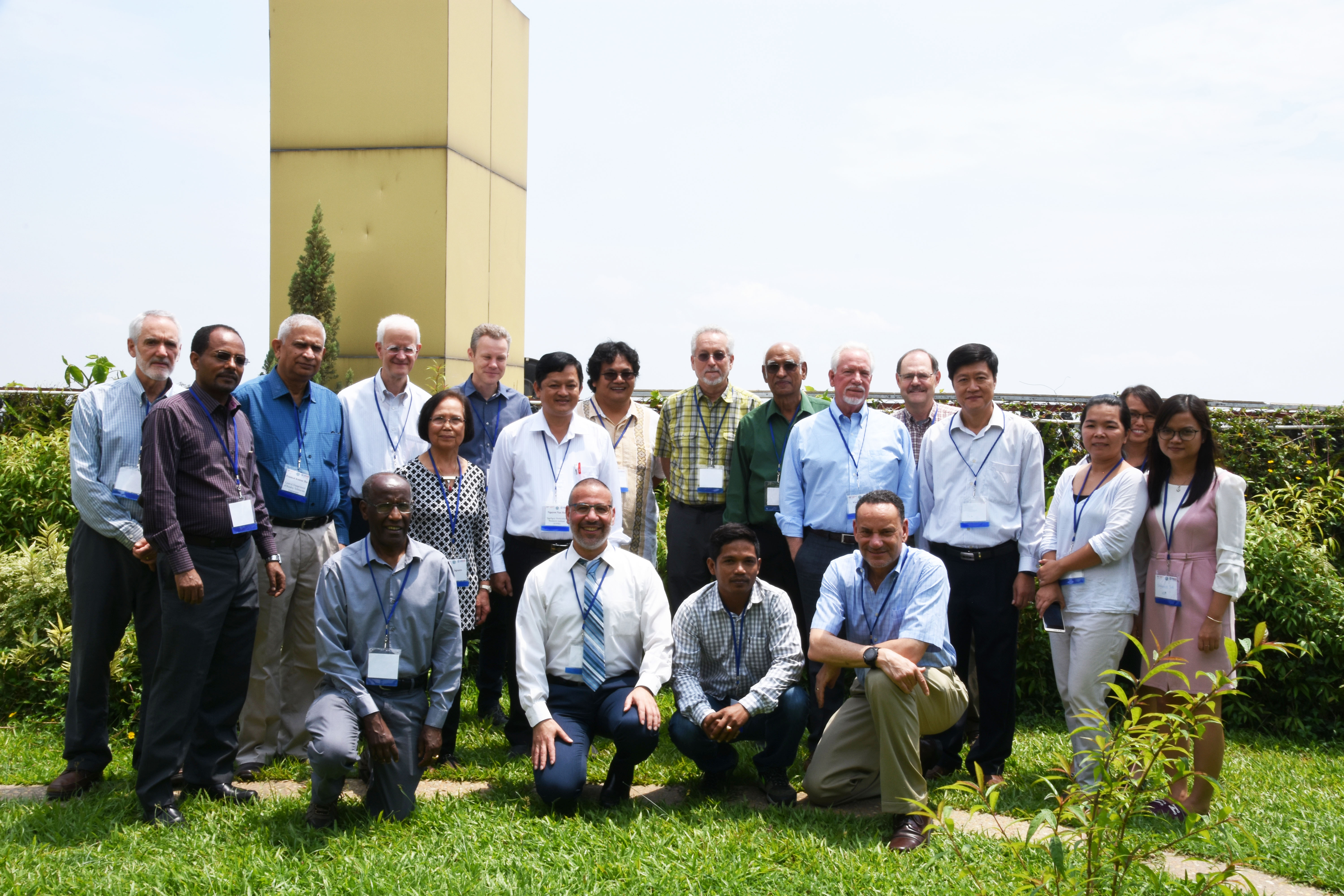IPM Innovation Lab holds annual technical advisory committee meeting in Cambodia

From May 28 to May 30, the Feed the Future Innovation Lab for Integrated Pest Management met for an annual Technical Advisory Committee (TAC) meeting in Phnom Penh, Cambodia. During the first and second day, principal investigators and collaborators of each of the Innovation Lab’s eight projects presented on the progress, updates, and impact of their ongoing work in Africa and East Asia. Project successes include, but are not limited to, rodent management in the fields of Cambodia, the modeling and tracking of invasive species movement in Nepal, and the decreasing incidence of plant disease using the beneficial fungus Trichoderma in East Africa. After presentations, the meeting participants traveled to Thom Village in Prey Veng province to visit the Ecologically-based Participatory IPM Packages for Rice in Cambodia (EPIC) demonstrations, where trials and trainings of IPM technologies are currently taking place. Farmers from across the community attended the visit, with an overwhelming attendance by female farmers interested in learning more about IPM technologies.
Following Prey Veng, the TAC meeting members travelled to the Royal University of Agriculture (RUA), where IPM trials are performed by students with major success.
Attending the meeting from Virginia Tech was IPM Innovation Lab Director Muni Muniappan, George Norton, professor, Department of Agriculture and Applied Economics, Amer Fayad, associate director, IPM Innovation Lab, Van Crowder, executive director, CIRED, and Sara Hendery, IPM Innovation Lab communications coordinator.
Director Muni Muniappan and Communications Coordinator Sara Hendery traveled to Vietnam after the meeting to review progress on the IPM for Exportable Fruit Crops in Vietnam project, which targets four major economically vital crops: dragon fruit, mango, longan, and lychee. A major highlight from the implementing team on the ground, the Southern Horticultural Research Institute (SOFRI), was dragon fruit sleeving, a technology that has undergone a range of changes and innovations to efficiently protect the fruit from pests.


